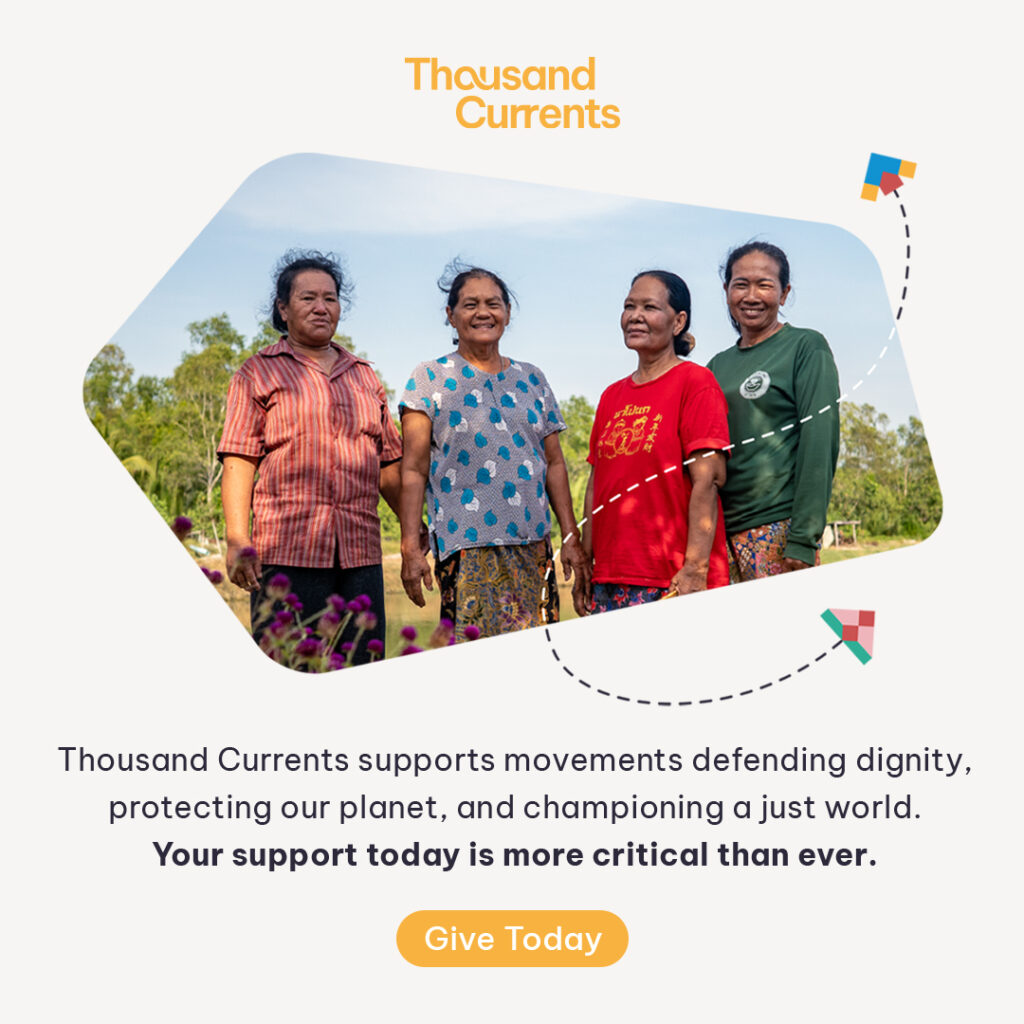Practicing Liberation

English | Spanish | French | Portuguese
Acknowledgements
This paper results from a research process carried over three months in 2021, involving independent investigation and interviews with African, Afrodescendant and Black peoples that have directly experienced or are engaged in thinking about liberatory economic systems in their communities. They are, in alphabetical order: Ana Santos (Brazil), Cacilda da Silva Marinho (Brazil), Elsa Ramatoko (Madagascar), Fatimah Kelleher (UK and Nigeria), Laudessandro Marinho (Brazil), Mazibuku Jara (South Africa), Stacey Sutton (United States), and Viviane Marinho Luiz (Brazil). I am thankful to each of them for their generous sharing of knowledge and time in contribution to this project. Special thanks to Sofia Garzón Valencia (Colombia) and Nonhlanhla Makuyana (United Kingdom/Zimbabwe) for extended contribution to this piece through deep investigations and joint reflections on the liberatory economic practices of Afro-Colombian, Black British as well as Zimbabwean communities. I am also grateful to Zahra Dalilah (African Diaspora Partnerships Manager) and Luam Kidane (former Vice President, Global Programs) at Thousand Currents for the invitation to write this paper and for their thoughtful yet exigent reviews and contributions. This paper would not be possible without their deliberate efforts to hold space and ensure the research and writing experiences were constructive. This paper thus results from collective work and imaginings.
Introduction
Among Afrodescendant communities of Tumaco, in the South Pacific region of Colombia, childbirth is treated as a critical moment of collective responsibility. For 40 days after a child is born, neighbours organise themselves to complete household chores including cooking, cleaning, and caring for the elderly or sick; enabling new mothers to heal their bodies and regain energies to welcome their children into the world. turno de dieta, as this practice is known, has been an essential component of an Afro-Colombian autonomous social reproduction system that has, at least since the 18th century, afforded dignity and care to Colombian women despite their historic social and economic marginalisation. [ 1 ]
Across the African diaspora and the continent, other practices have played an equally important role at the moment of death. In South Africa and Zimbabwe, it is common practice for women to form burial societies, contributive schemes that their families can draw on at the time a loved one passes away. Rooted in resistance against the impoverishment of Indigenous African populations during the periods of settler colonialism and apartheid, today, in the context of neoliberal capitalism and state failure, burial societies remain essential to ensuring African people can have a dignified end of life transition, including the observation of appropriate traditional burial rites. [ 2 ]
Revealing values such as reciprocity, trust, care, cooperation, autonomy, collective wellbeing and ecology, turno de dieta and burial societies attest to the existence and persistence of different ways of producing, transacting and distributing social wealth other than through the exploitation of labour and the nonhuman environment for profit-maximisation. If ‘the economy’ is understood as a series of relations, institutions and practices oriented towards the sustenance of livelihoods, turno de dieta and burial societies are therefore a testament that, around the world, African, Afrodescendant and Black communities have been the custodians and architects of collective, care-oriented, regenerative and emancipatory economies that have persisted beyond, alongside and despite the hegemony of capitalist social relations.
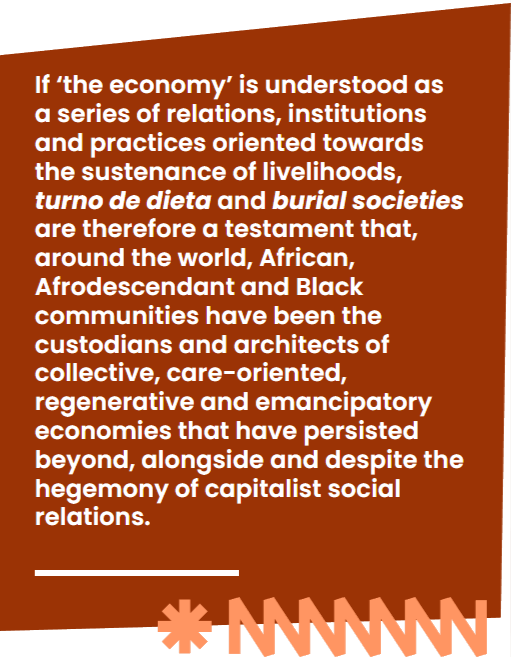
This paper spotlights a selection of these practices, forefronting the ways of living, creating and relating to the economy that are rooted in the collective efforts of African, Afrodescendant and Black peoples to redress historical injustices, reclaim dignity and autonomy and practice self-determination. Drawing lines of continuity between the past and the present, the paper identifies practices that manifest both as remnants of ancestral economic systems and ways of living and creating that do not reference or relate to capital frameworks, as well as the imaginative ways in which African, Afrodescendant and Black communities have resisted and subverted capitalism across space and time.Throughout the paper, these will be referred to as liberatory African economic practices. [ 3 ] The examples are presented in two groups. The paper first looks at the practices occurring within emancipatory ecosystems of interconnected practices, institutions and relations, or rooted in an explicitly stated political ideology seeking to affirm the autonomy and self-determination of African, Afrodescendant and Black peoples. [ 4 ] The second section spotlights practices that occur outside of any explicitly stated project or ideology of African liberation.
Within these groups, the paper attempts to demonstrate how each practice manifests in different geographies, the contextual issues that prompted its emergence, the value systems in which the practice is rooted as well as the ways in which it contributes to realities and imaginations of African economic liberation. Case studies were researched and are presented for Angola, Brazil, Colombia, Ethiopia, South Africa, the United States of America (US), the United Kingdom (UK) and Zimbabwe as well as seven countries in West Africa, in particular, Burkina Faso, Gambia, Ghana, Guinea Conakry, Guinea Bissau, Mali, and Senegal. [ 5 ]
The list of practices presented here is not exhaustive, nor does it purport to be significantly representative of African people’s long and rich history forging economies in ways that sustain the thriving of our bodies, spirits, and earth. The paper is best understood as a surveying exercise carried out with the intent of uplifting the wealth of African economic structures and their immense value in providing blueprints for life beyond capitalism.
On a secondary level, the paper hopes to challenge the under-documentation of African, Afrodescendant and Black economic structures in the alternative economies’ bodywork. In so doing, the paper supports Caroline Hossein’s call for frameworks of the social and solidarity economy to meaningfully engage the lived realities of Black people and the radical theorisations of Black liberation as indispensable to their anti-capitalist theorising and praxis. [ 6 ]
Framing African Economic Liberatory Praxis
The employment of the term ‘liberatory’, as opposed to the conventionally-used ‘alternatives’, to refer to the African economic practices presented in this paper rests on two critical theoretical considerations. First, it represents an effort to decenter capitalism as a reference point against which all other forms of economy must be defined and forefront emancipatory conceptualisations of ‘the economy’. Secondly, it seeks to recast African liberation as an ongoing process grounded on radical pan-African and feminist transformational politics. This section elaborates on these points, establishing the notion of African economic liberatory practice that provides the theoretical framing for this paper.
Beyond anti-capitalism
In their critical bodywork of alternative economies theorising, feminist economic geographers Katherine Gibson and Julie Graham define the economy as a site of difference “populated by various capitalist and non-capitalist institutions and practices”. [ 7 ] In recognising the multiple ways in which people transact, negotiate value, organise and compensate labour and also produce, appropriate and distribute surplus, J.K. Gibson-Graham provide a useful framework to dislodge the hegemony of capitalist framings of the economy, uplifting “other forms of economy as viable projects rather than idealistic fantasies”. [ 8 ]
Using the diverse economies framework, the economy can be redefined as a historical-discursive production comprising various processes and interrelations through which human beings create livelihoods. [ 9 ] Accordingly, economic practices can be understood as the different forms through which human beings relate to one another and the environment in livelihood-making processes. Hence, economic practices are not restricted to the “domain of individualised, monetised, rational-maximising calculation”. [ 10 ] Instead, they relate to a complex economic sociality, that is, the interdependent, conflicting, and co-constituting processes of organising social relations around collective provisioning. How this collective is framed is central to distinguishing capitalist from liberatory or emancipatory economic practices.
Forging intentional emancipatory communities
As a system predicated on individual self-actualisation, capitalism is inherently antithetical to emancipatory forms of collective existence. At best, alternative capitalist definitions of the commons acknowledge the possibility of communities of self-interested individuals, often sharing a privileged identity and brought together by a common desire to maximise their accumulation by restricting access to other groups. [ 11 ] Framed in such an exclusionary way that does not challenge the subordination of human beings and nature to the ‘profit motive’, the community cannot offer a pathway towards emancipatory economic modes.
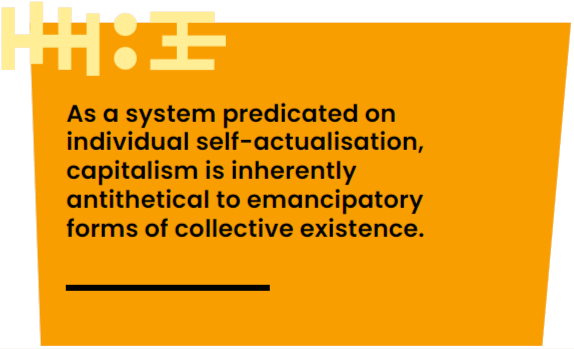
On the contrary, liberatory economic practices are underpinned by a radical understanding of community as a social formation forged through bonds of trust, solidarity, reciprocity, and care. Essentially, liberation entails a subversion of what Walter Rodney described as the “most perverse form of alienated capitalist individualism, devoid of any form of social solidarity or a sense of social responsibility.” [ 12 ]
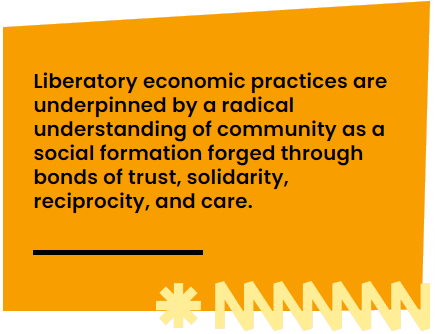
These bonds of emancipatory cooperation do not emerge in a vacuum. Instead, they result from politically grounded productive encounters; moments in which individuals and communities come together to solve collective material problems. It is through repeated convening and exchange around collective challenges that relations of trust are formed and deepened. At a fundamental level, therefore, as Black economist and Afro-Colombian activist Sofia Garzón Valencia notes in her reflections on liberatory reproductive systems of Afro-Colombians for this piece, encounters are the means through which wellbeing is scaled from the individual to the community; so, sustaining the collective encounter also sustains the community.
As a core tenet of anti-capitalist imagination and practice, community presupposes that liberation is inherently a collective project rooted in the recognition that the individual’s wellbeing cannot be extricated from the wellbeing of the community and a balanced relationship with the environment. Thus, in the domain of liberatory politics, the community is not limited to an essential community shaped around a shared ethnicity, geography or national/regional identity. It is dynamically and deliberately created through the practice of democratic and collective processes of caring for the commons: common needs, common dangers, and common possibilities to recreate the world around collective visions of a truly humane society. [ 13 ]
In her comprehensive study of the history of African American cooperatives, Black political economist Jessica Gordon Nembhard demonstrates that the creation of “intentional communities” through practices of solidarity and collective action has historically played an essential role in Black resistance to oppression, racial violence, discrimination, and poverty in the United States of America. [ 14 ] Across history, African, Afrodescendant and Black people in various geographic locations have cultivated various forms of intentional emancipatory communities to challenge processes of colonisation, capitalism and their ancillary oppressive power structures. Not incidentally, Frantz Fanon was prescient in defending that “unity and effective solidarity are the conditions for African liberation”. [ 15 ]
Centring a transformative pan-Africanism and feminist politics
Decentring capitalism in the framing of African liberatory economic practices does not in any way amount to a dismissal of its importance in shaping the very liberatory endeavours of African peoples. Pan-Africanism emerged as an anti-imperialist political ideology and evolved through contested visions of African liberation: national sovereignty, racial equality, territorial nationalism. [ 16 ] Thus understood, pan-Africanist ideology must be reworked, redefined and reapplied in order to frame African liberation in today’s world where the sovereignty of African nation-states and the inclusion of Black people globally into liberal frameworks of citizenship coexist with the continued marginalisation and exploitation of Black bodies and nations. To account for the pitfalls of the postcolonial project, it is imperative to recognise the pan-African liberation project as an unfinished task. Professor Issa Shivji calls for a reframing of pan-Africanism as “an ideology of social emancipation… inextricably embedded in the struggles of [African] working people”. [ 17 ]
While shifting the emphasis to class and class struggle, this revisiting of pan-Africanism remains true to its original anti-imperialist politics. It also demands a critical epistemic break with the neglect or subordination of feminist struggles in historical framings of pan-Africanism, for African women are the largest contingent of the working classes across the continent and the diaspora.
Thus, the notion of African liberatory economic practices employed in this paper is located within a transformative pan-African and feminist political ideology that understands African liberation as an ongoing process, connecting past and contemporary struggles of African, Afrodescendant and Black people against capitalist, colonial and racist and hetero-patriarchal oppression and exploitation. From this point of view, African liberatory economic practices have two defining characteristics. One, they subvert the historical exploitation and subjugation of African peoples and, two, they are grounded on democratic, inclusive, and regenerative social and economic relations, organisations and spaces that guarantee dignity and autonomy to African peoples, particularly to those among us that have been historically marginalised due to gender, sexual orientation, ethnicity, and other markers of social difference. Whether explicitly stated or merely implied, these two principles are central features of the economic practices surveyed in the paper.
Performing African Liberatory Political Ideologies
It is unfeasible to advance African liberation without transforming the political structures and relations that undermine the autonomy of African, Afrodescendant and Black peoples. In this group, the paper foregrounds practices embedded in broader projects and ideologies of African liberation. Thus, the transformation of hegemonic power relations into democratic, egalitarian and collectively-oriented realities in all spheres of life, including the economy, is a core tenet of the liberatory ideologies underlying the practices presented in this section.
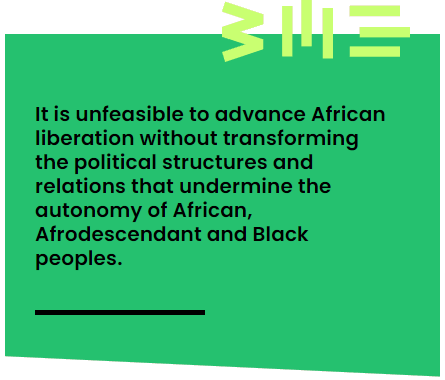
Honouring the land
The definition of land as private property is the cornerstone of capitalist social relations. Considered exclusively as a means of production, and therefore as a resource that can be accumulated, exploited, traded at will, the land is valued essentially for its material significance to the process of capitalist surplus-value creation, devoid of any relevant social, cultural, and spiritual meaning. The history of uneven and combined global capitalist development attests that processes of land commodification are intrinsically related to processes of colonial conquest and capitalist displacement, expropriation and underdevelopment of Africa and Black people globally. [ 18 ] Not incidentally, the forced severing of material links to the land and the undermining of Indigenous forms of landholding have always been core aspects of processes of enslavement and the (neo-) colonisation of African peoples.
The preservation, reconstitution and reimagination of reciprocal forms of materially and spiritually relating to the land and the natural environment is an essential element of the liberatory praxis of many African and Afrodescendant and Black communities.
Within the continent, Nous Sommes la Solution (NSS) provides a poignant example. NSS is a movement for food and land sovereignty in West Africa led by women peasant farmers, comprising about 800 grassroots associations based in Senegal, Burkina Faso, Mali, Ghana, Guinea-Bissau, Guinea-Conakry and Gambia. NSS defends agroecology and smallholder farming as necessary pillars of Africa’s long-term sustainable and harmonious development and emancipation. [ 19 ]
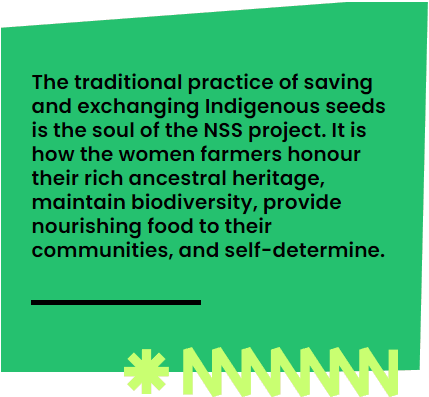
The traditional practice of saving and exchanging Indigenous seeds is the soul of the NSS project. It is how the women farmers honour their rich ancestral heritage, maintain biodiversity, provide nourishing food to their communities, and self-determine.
At the core of the NSS political ideology and praxis lies an understanding that conventional and industrial farming practices and commodified land-holding frameworks are among the main causes of social, economic, and environmental challenges facing African countries. They degrade the land, destroy biodiversity (seeds, fauna and flora), and ultimately risk the wellbeing of Africans through the production of toxic and unhealthy agricultural products. For this reason, NSS explicitly rejects chemical pesticides, genetically modified seeds, agribusiness, and the legal and governance frameworks that impose these at the expense of Indigenous agroecological farming practices and collective land holding structures.
In contrast, NSS ethos fosters a reciprocal relationship to the land and, more broadly, to preserve communal ways of existing in harmony with self, others, and the environment. Their work is concerned with harvesting and distributing healthy agricultural produce and the active creation of healthy consumption alternatives. For example, to counter the widespread use of industrially produced stock cubes containing artificial flavour enhancers, NSS members in southern Senegal have started producing natural flavour enhancers. [ 20 ] Sam Pak, as the natural flavour enhancers produced by the NSS women in an entirely manual and collective process according to traditional recipes are called, have become highly popular. This is largely because NSS regularly engages in radio shows, training workshops and tasting sessions to introduce the product, show how it can be used and produced and, in the process, raise awareness about the negative health implications of industrialised stock cubes and broths. For NSS, liberation entails exercising autonomy over what we eat and how it is produced.
The ecosystem created by NSS exemplifies how African communities are decisively forging liberatory economic realities and, in the process, charting pathways out of an economic system that degrades and exploits our bodies, the environment and undermines our knowledge of regenerative, collective, and emancipatory ways of living. In other parts of the continent, particularly in Southern Africa, different movements and groups have engaged in similar projects, including Ntinga Ntaba kaNdoda, a rural community movement located in Keiskammahoek, Eastern Cape (South Africa) and the Rural Women’s Assembly, a coalition of southern African rural women organising to defend the land, seeds and the environment.
In Brazil, the employment of traditional farming methods in Quilombola communities is another fitting example of African communities building life in a way that centres the care of the land as an essential part of the struggle for Black liberation. With almost 91 million citizens of African ancestry, Brazil is home to the largest Black population outside of Africa. The history of Afro-descendant Brazilians is a history of a brutal enslavement system that enabled capitalist development through the exploitation of Black bodies and dispossession of Indigenous land. However, it is equally a history of the continued resistance of Black Brazilians against a system of racial capitalism that continues to reverberate into contemporary Brazilian society.
Ivaporunduva is a Quilombola community located in the interior of the São Paulo state, stretching eastwards from the margins of the Iguape River towards the heart of the Atlantic Forest in the Ribeira Valley. Quilombos are settlements established by fugitive enslaved Africans during the seventeenth and eighteenth centuries. According to Fundação Cultural Palmares, in 2008, over 3,500 Quilombola communities existed in Brazil, spread across practically all states. [ 21 ] For their historical persistence and commonality, Quilombos are considered the most permanent and representative markers of the resistance of enslaved Africans in Brazil. [ 22 ] They are radical realities of social organising that continue to affirm the heritage and autonomy of Black and Afrodescendant Brazilians amidst the continued structural racism of contemporary Brazilian society.
Collectivism, the sacredness of the land, and the preservation of traditional African knowledge are the values at the heart of Quilombola social relations. The relationship to the land is established materially (as a production input and the basis of provision for communities) and spiritually, manifested in the belief that land is a living entity passed from generation to generation of Quilombolas acting as its custodians.
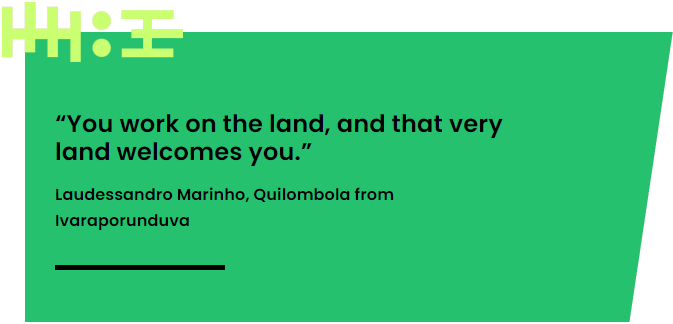
This idea of the reciprocal relationship with land encapsulates the ancestral link Quilombolas maintain to the land occupied by fugitive enslaved Africans. That the land has freely given itself to Quilombolas, based on a relationship of mutual care, is at the core of how Quilombolas have historically used land to derive their subsistence.
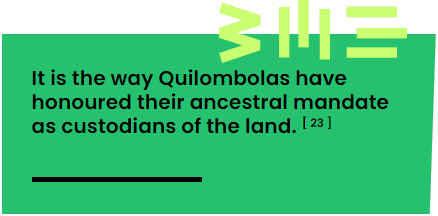
The traditional Quilombola farming system involves a variety of cultivation and ancillary agroecology and Indigenous knowledge preservation practices. It is the way Quilombolas have honoured their ancestral mandate as custodians of the land. The employment of historical and ecological means of cultivating the land, such as the use of fire to fortify the soil and allow it to rest between harvests (roça de coivara), as well as the protection of Indigenous seeds and cultures using seed banks, and the realisation of an annual fair of Indigenous seed exchange called Feira de Troca de Mudas e Sementes are practices that characterise this mode of production.
At the core of the traditional Quilombola farming system, there is a commitment to producing in ways that sustain life and the autonomy and dignity of the Quilombola community. In this sense, the traditional Quilombola farming system materialises the resistance of Quilombola communities against the dispossession and alienation of enslaved Africans and their descendants from land, labour and traditional knowledge systems. That these systems persist demonstrates a successful refusal of Quilombola communities to be absorbed by the capitalist mode of living, particularly in processes that result in the commodification of nature.
Many of the core values and principles inherent in the traditional Quilombola farming system appear in the agricultural practices of other African, Afrodescendant and Black communities across the world. In Colombia, among Afrodescendant communities in the region of Tumaco, finca tradicional (traditional farm) entails the organisation of community members to produce essential crops such as bananas, fruit trees, coffee, beans, and timber. As with the traditional Quilombola farming system, the primary objective is to provide subsistence to the extended community. However, the sale of surplus to enable the purchase of other products and services the community cannot produce internally (i.e. electricity, internet, books, medicine) is also a common practice in both Tumaco and Quilombos. [ 24 ] Finca tradicional is part of an Afro-Colombian production system because planting and harvesting seasons are coordinated with and around other economic activities. For example, tonga is a community-based practice of artisanal mining of gold at times when riverbanks are low. Tonga is rooted in the notion that rivers and gold are commons to be protected, such that no individual, community member or unit should extract the gold in ways that compromise the ability of earth to recover or the next person’s possibility of benefiting from the commons. Along the riverbank, each family lays out a line and works on that line. Each line has several members of the same family, usually people of various ages, and it is very common to start from the age of seven. The line digs gold, prepares fire for barbecue, and assembles food.
Cooperative encounters are a crucial component of the community kitchen organised by the Centro de Integração (CEM) in the complex of Penha favelas, Rio de Janeiro, Brazil. In the daily coming together to tend to the collective garden and to prepare and distribute food, women in the community of Serra da Misericórdia recommit their bonds to each other, their community, and the land. Crucially, by joining efforts to address critical community problems of malnutrition, hunger, and economic dependence, through urban agroecological practices, these women recreate emancipatory possibilities.
Ana Santos, co-founder of CEM, notes that through challenging the experience of the kitchen as a site of patriarchal subjugation and undervaluing of Black women’s labour, CEM’s collective kitchen recasts the kitchen as a site of Black women’s individual and collective emancipation. For her, this emancipation crystallises in the autonomy of women to feed their communities food that is affordable, nutritious, and produced through generative processes in relation to labour and nature.
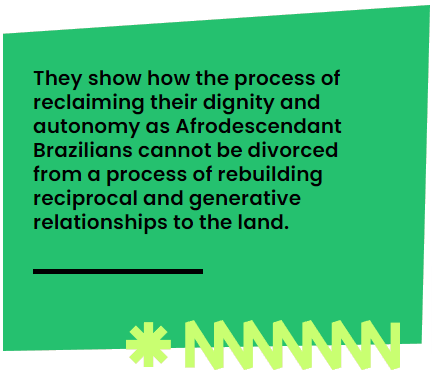
The CEM project presented earlier also encompasses an attempt to resignify the relationship of Black Brazilians to the land through popular education initiatives that aim to democratise knowledge about the relationship between environmental degradation and the economic and social marginalisation of favelas. By promoting agroecology and a defence of the Serra da Misericórdia, the last remnant of Atlantic Forest in the city of Rio de Janeiro, CEM seeks to reshape how Black people living in the favelas relate to the land. In particular, they show how the process of reclaiming their dignity and autonomy as Afrodescendant Brazilians cannot be divorced from a process of rebuilding reciprocal and generative relationships to the land.
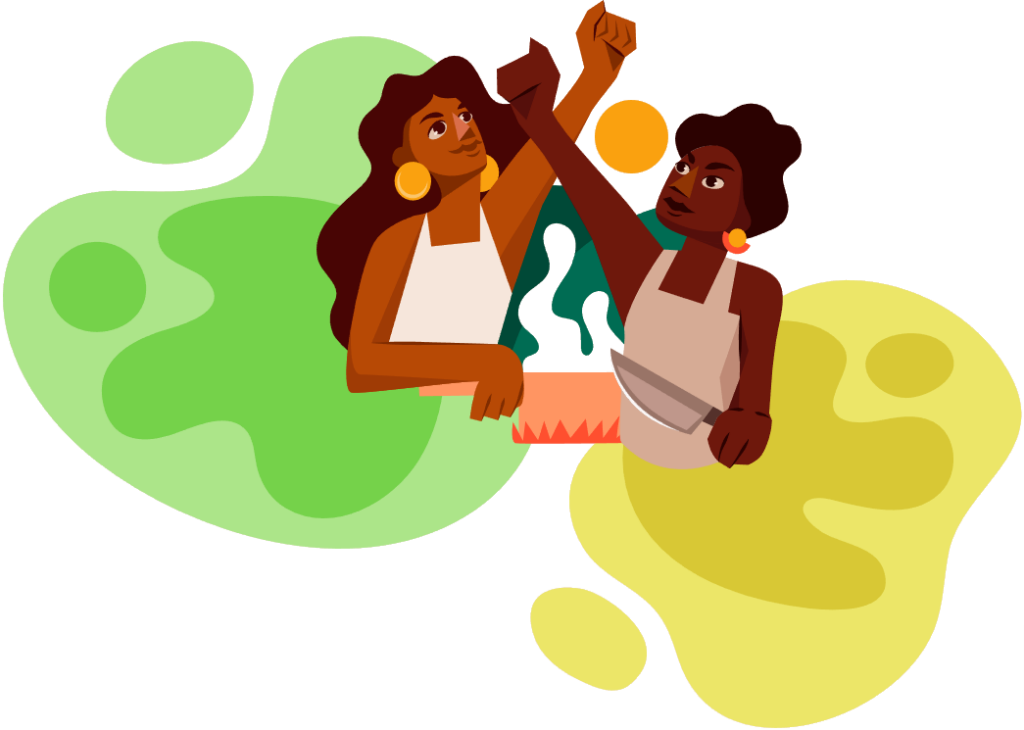
Emancipation through collective work
In Azzezzo, a rural town in Ethiopia, farmers organise themselves in collective structures known as wobbera, debo or wonfel, moving from one farm to another to manage weeding and harvesting during the farming year. [ 25 ] The same practice of calling for and engaging community members in collective work during planting and harvesting is at the core of the traditional Quilombola farming system, known as mutirão. In Colombia, a similar practice is known as minga. In the context of the Afro-Colombian finca tradicional, minga is employed in territories where land is used collectively for activities of self-sufficiency and sustainability of common goods.
Minga and mutirão were not created nor are exclusively practiced by Afrodescendant communities in Brazil and Colombia. Both practices originate from the Indigenous peoples of Colombia and Brazil, with whom Afrodescendant people came into touch after being taken to these countries as enslaved people. This, however, does not diminish the liberatory content of minga and mutirão. Instead, it reinforces that in developing strategies to survive adverse contexts of enslavement and displacement, Afrodescendant communities have maintained and developed practices passed from their enslaved ancestors and integrated emancipatory aspects of other communities that were also resisting processes of subjugation, exclusion and displacement. [ 26 ]
Mano cambiada (changed hand), a related practice that is employed by Afrodescendant Colombians, consists of calling together neighbours for the realisation of a specific task – such as clearing the bush, weeding, preparing the land, sowing, harvesting, raising the foundations of a house – to help one community member or unit. In this practice, commensurability is established as the right of community members to also benefit from the community help at a later date.
The institution of clear rules and expectations of non-monetary reciprocation is what differentiates mutirão, minga and mano cambiada from other forms of mobilising collective work. Hence, the practices listed in this section are examples of collectively performed reciprocal labour. [ 27 ]
That this form of organising and negotiating labour is a recurring aspect in many African, Afrodescendant and Black economic realities serves to show that liberation is deeply intertwined with the organisation of work in ways that promote a shared division of the burden and benefits of the production of social wealth.
Experiments in African Economic Emancipation
The economic practices of African communities need not be rooted in an explicitly stated liberatory politics or ideology to have an emancipatory content. In the context of globalised and hegemonic capitalist social relations, all those practices that enable African, Afrodescendant and Black peoples to reclaim some degree of autonomy and self-determination within the bounds of capitalist social relations possess a radical edge. [ 28 ] This section explores some experiments in African economic emancipation that constitute vital resources for our imaginings and charting of pathways towards wholesome liberatory economic realities for African peoples. [ 29 ]
Saving collectively
Due to the displacement of Africans resulting from colonialism and neocolonial violence, communities in the diaspora and on the continent have had to create and employ strategies to meet specific problems within communities, such as challenges in accessing finance.
The practice of saving circles entails pooling money together by handing over a set amount each week or month. Circle members take turns receiving the pooled funds on a rotating basis. However, turns may be skipped when one member has an exceptional urgent need such as death or accident. Burial societies are but one type of rotative saving circles, or ways in which communities without access to monetary wealth pool together money to resource everyday living.
These mutual aid practices exist throughout the African continent and the diaspora under different forms and names. In Angola, the practice is commonly known as kixikila. [ 30 ] Among Afro-Colombian communities, it is known as cadena (chain). In Nigeria and other parts of West Africa, it is called adashi. Caribbean communities in the United Kingdom term this practice as pardner or susu. Gamey’a, ekub, chiquitique and cuchubal are the denominations used in Egypt, Ethiopia, Mozambique and Guatemala.
A common feature across all of these manifestations is that the saving circles are often led or exclusively formed by women. Informal, with no bureaucracies, no interest and based on bonds of trust between participants, savings circles have persisted as popular solutions for African peoples to address financial hurdles associated with low salaries, unemployment, expensive credit, inflation as well as to finance important events such as the start of school, weddings, births, anniversaries, the purchase of a home, furniture, among other things and events. The emancipatory aspect of saving circles lies in affording African, Afrodescendant and Black women and communities the possibility of accessing funds that they would not have been able to gather individually or would be too costly to access through market-based options such as credit.
Saving circles also constitute ways African peoples are rebuilding bonds of trust and solidarity, particularly in situations where these might not naturally occur such as in urban settings, where interactions between people tend to be fleeting rather than sustained, and in situations where people do not share an easily identifiable common identity. Hence, saving circles are contemporary examples of intentional emancipatory practices rooted in solidarity, mutual aid and collective effort.
Reclaiming the land
The dispossession of African, Afrodescendant and Black communities from land and, more broadly, access to the commons has instigated the creation of collective experiments in generating new forms of land usage. In Zimbabwe, due to the legacy of settler colonialism, displacement and racist farming laws, and the increasingly corporate capture of land and food systems, many citizens in urban settings cannot afford food or grow their own food. In this situation, many Zimbabweans have turned to guerilla gardening, a practice in which they occupy small spaces of land to grow food that is eaten by families and can be sold to the community. [ 31 ] The practice has increased in uptake during the COVID-19 pandemic, as Zimbabweans try to grapple with worsening economic conditions exacerbated by lockdowns. [ 32 ] Beyond enabling survival, guerrilla gardening is an emancipatory economic practice because it strengthens reliance on community economic systems of production instead of multinational corporations, therefore keeping money within communities.
Other innovative engagements can be noted. In the United Kingdom, the Ubele Initiative, an African-diaspora-led intergenerational social enterprise founded with the purpose of helping to build more sustainable African, Afrodescendant and Black communities across the country, is experimenting with the purchase of community shares to support the maintenance of community assets. These efforts respond to the exclusion of Black people from urban areas due to gentrification.
In the United States, Community Land Trusts (CLTs) provide more tested examples of equalising land ownership patterns and ensuring long-term housing affordability for the benefit of African-American communities. [ 33 ] There are currently 225 to 280 community land trusts in the United States, comprising approximately 15,000 home ownership units and 20,000 rental units. [ 34 ] Although it has proven difficult to find specialised statistics on the number of Black community land trusts, CLTs have undisputedly been critical for Black people and other marginalised communities in the United States. They have prevented their displacement due to land speculation and gentrification, and also created pathways for their direct engagement in community decisions and control of community assets. Therein lies the liberatory potential of CLTs.
Empowering labour
Capitalist social relations are defined by the subjugation of labour to capital and the definition of value-based market exchange. Across the world, African, Afrodescendant and Black people have pioneered efforts at subverting and reimagining these exploitative realities, including by experimenting with diverse forms of reclaiming the autonomy of African people over their labour-power.
The vast network of Black worker cooperatives in the United States is a compelling example. A major feature of the cooperative enterprise is that ownership is collectively held by workers or people who use their services. Generally, as Jessica Gordon Nembhard writes, cooperatives are formed “to satisfy an economic or social need, to provide a quality good or service (one that the market is not adequately providing) at an affordable price, or to create an economic structure to engage in needed production or facilitate more equal distribution”. In other words, the profit motive is not the defining purpose of the cooperative experiment.
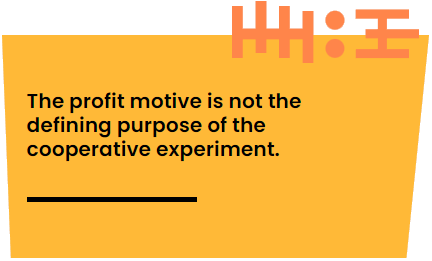
Black worker cooperatives are as varied as the needs they seek to satisfy. Within New York alone, there are multiple examples. Brooklyn Packers is a food delivering co-op that seeks to get fresh organic food to communities in need. Bronx-based Green Workers Cooperatives serves immigrant and communities of colour through the development of worker-owned green businesses. Woke Foods is a co-op engaged with the production of food innovating from Afro-Caribbean and Dominican recipes.
Another example is Mississippi-based Cooperation Jackson, a self-defined “emerging network of worker cooperatives… that [aims] to develop a series of independent but connected democratic institutions to empower workers and residents of Jackson, particularly to address the needs of poor, unemployed, black or Latino residents”. Cooperation Jackson coordinates production to achieve community self-determination, self-reliance, self-respect, and self-governance. [ 35 ] In being intentional about its anti-capitalist values and practices, Cooperation Jackson upholds a dual power politics; in other words, a politics of building economic democracy while at the same time coexisting with and challenging capitalist power structures in the transition process. [ 33 ]
It is important to note not all worker cooperatives espouse a revolutionary politics. Indeed, as the United States’ Black Socialists Association notes, “most Worker Cooperatives in the United States are not inherently anti-capitalist as far as their external relations are concerned (how they relate to the rest of society and the world), and many of them have not expressed a radical commitment to maximising democracy and minimising inequality as far as their internal relations are concerned (making sure that their own institutions actually hold true to socialist values in benefiting workers).”
In her interview for this piece, Dr Stacey Sutton noted that in many instances worker-owners become a unique type of capitalists, competing with other enterprises for control of markets and therefore hustling to accumulate more. Nevertheless, in principle and practice, worker cooperatives can be part of the path to emancipatory realities. They show that it is possible to subvert the core capitalist tenet of subordinating labour to capital, producing primarily to satisfy social needs instead of accumulating individual wealth.

Economic Liberation As a Collective Political Process of Self-Determination
The wealth of liberatory economic practices, systems and structures presented in this paper strongly evidences that a world beyond capitalism not only is possible but that it is a reality lived by many African, Afrodescendant and Black communities globally. Although the surveyed practices vary significantly in their manifestations, histories and liberatory content, jointly analysed, they offer useful insights for the prefigurative politics of anti-capitalist resistance. Three considerations are worth highlighting.
One, economic liberation need not be merely defined as an ideal or a macro-level process of transformation of society-wide power relations. Rather, it is embedded as an ecosystem of everyday practices that forefront the satisfaction of community needs through collective, regenerative and ecological ways of producing and caring for each other. In this sense, a meaningful liberatory economic praxis is rooted in social relations that democratize economic power and challenge oppressive, exploitative and unequal structures and processes.
Two, economic liberation is a collective political process of self-determination. On the one hand, this implies that emancipatory practice is informed by or at least relates to historically-grounded, contemporary-relevant and forward-facing liberatory political ideologies. Liberatory economic practices exist within a spectrum of rebellion – revolution, through which communities either subvert certain fundamental aspects of capitalism or put forward radical propositions to overthrow it. 37 From this perspective, it becomes clear that there is no such thing as non-ideological economic liberation.
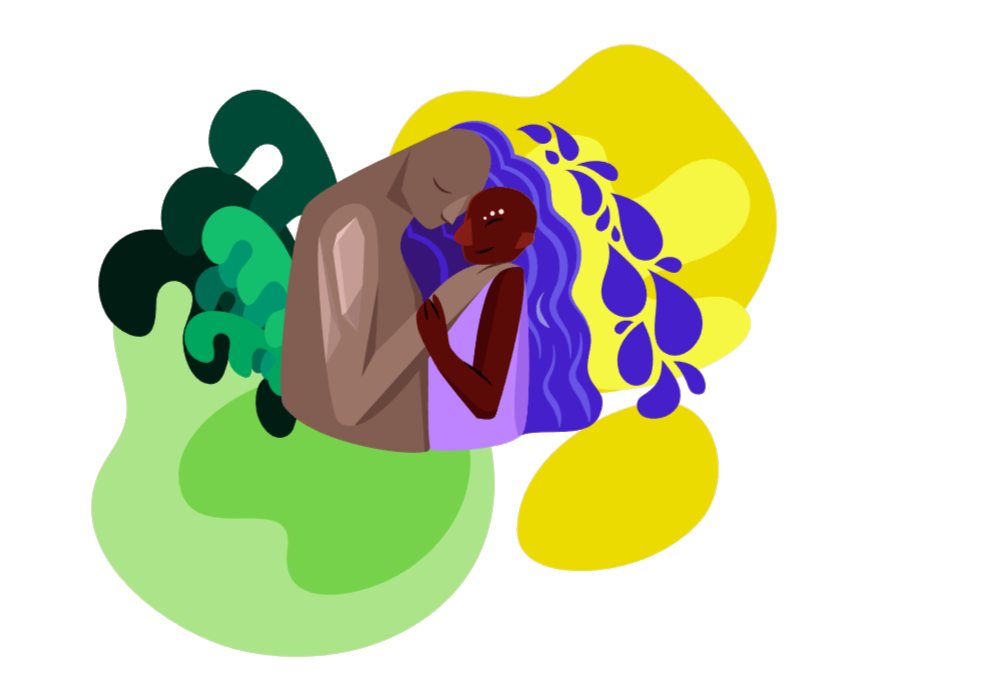
The other implication is that economic liberation cannot be forged merely through one practice. At best, individual practices offer valuable foresight into possible pathways towards liberation, and can thus inspire transformative political action. These points are particularly important to counter neoliberal framings of economic liberation that are predicated on individualised, competitive and exploitative processes of wealth accumulation.
Finally, economic liberation is inextricably linked to a deliberate recuperation and affirmation of Indigenous knowledge systems and practices while at the same time forging new ways of living responding to contemporary challenges. African feminists make this prescient by affirming their struggle as a process of “craft[ing] new identities for African women, identities as full citizens, free from patriarchal oppression, with rights of access, ownership and control over resources and our own bodies and utilizing positive aspects of our cultures in liberating and nurturing ways”. [ 38 ]
“We must find something different… not obsessed by a desire to catch up with Europe”, Fanon exhorted. [ 39 ] Thus, it is in this dialectical process of the old and the new, of looking within and looking around, of resistance and rebellion, that (economic) liberation takes shape. The intrinsic value of the African liberatory economic practices this paper presented lies in providing us with different points of departure: our relationship to each other, our relationship with our environment, and the ways in which we show up and care for each other in the process of transforming ourselves and our worlds.
About the author
Âurea Mouzinho is a political economist and feminist organiser from Luanda, Angola. Her work lies at the intersection of research, movement-building and advocacy to challenge the root causes of economic inequalities and explore potential pathways to change. She has reflected on labour relations in the Angolan urban informal economy, the impact of militarisation and extractivism on violence against women in Mozambique, and the challenges to feminist organising in Angola. Âurea comes to this research primarily as a learner seeking to deepen her knowledge of revolutionary African politics and practice relating to the economy and connecting with African, Black and Afrodescendant people leading these struggles around the world.
References
- Credit is due to Sofia Garzón Valencia, Black Afro-Colombian economist and co-ordinator of the gender-based violence observatory, Vigia Afro, for information and insights relating to Afro-Colombian economic practices and systems. The “turno de dieta” also occurs when a woman miscarries, although it lasts fewer days.
- Credit is due to Nonhlanhla Makuyana educator, creator, economic organiser and co-founder of Decolonising Economics for critical information and insights into the liberatory economic practices of Black people in the United Kingdom as well as communities in Zimbabwe and South Africa.
- In this case, and throughout the paper whenever economic practices or systems are referred to, African is employed in the pan-Africanist sense, encompassing Black, Afrodescendant, and African peoples whose lineage connects them to the continent regardless of their citizenship or geographies.
- I am thankful to Dr Stacey Sutton for defining liberatory ecosystems during her interview for this piece.
- These last seven countries are listed as a block in acknowledgement that the paper does not provide country-level examples but rather focuses on the case of Nous Sommes La Solution (We Are the Solution), a rural women farmers’ movement for food sovereignty.
- Hossein, C.S., 2019. A Black Epistemology for the Social and Solidarity Economy: The Black Social Economy. The Review of Black Political Economy, 46(3), 209-229.
- J. K. Gibson-Graham. 2006. A Postcapitalist Politics. University of Minnesota Press. p. 54.
- Araujo, E., 2018. Moneyless economics and non-hierarchical exchange values in Chiapas, Mexico. Journal des anthropologues. Association française des anthropologues, (152-153), pp.147-170.
- Gibson-Graham, J.K. and Miller, E., 2015. Economy as ecological livelihood. Manifesto for Living in the Anthropocene, pp.7-16
- Ibid, p.7
- Caffentzis, G. and Federici, S., 2014. Commons against and beyond capitalism. Community Development Journal, 49(suppl_1), pp.i92-i105
- Rodney, W., 2012. How Europe underdeveloped Africa. Pambazuka Press. pp. 254
- To paraphrase Vincent Harding, Robert Hill and William Strickland in their 1891 introduction to Walter Rodney’s How Europe Underdeveloped Africa, p.xxviii
- Nembhard, J.G., 2014. Collective courage: A history of African American cooperative economic thought and practice. Penn State Press. pp. 31-47
- Fanon, F., 1988. Toward the African revolution: Political essays. Grove Press. pp.170-175
- Shivji, I. 2021. Pan-Africanism and the Unfinished Tasks of Liberation and Social Emancipation: Taking Stock of 50 Years of African Independence. Available at: https://www.theelephant.info/long-reads/2021/06/26/pan-africanism-and-the-unfinished-tasks-of-liberation-and-social-emancipation-taking-stock-of-50-years-of-african-independence/ (Accessed: 5 July 2021)
- Ibid
- Walter Rodney’s magisterial How Europe underdeveloped Africa remains central to this understanding.
- Organic Without Boundaries. 2018. Interview with Mariama Sonko: Raising the Voice of Women Farmers in West Africa! Available at: https://www.organicwithoutboundaries.bio/2018/08/10/raising-women-farmers-africa/ (Accessed 5 July 2021)
- Agroecology Fund. 2021. Women food producers in Senegal cook up a healthier alternative to industrially produced broths. Available at: https://www.agroecologyfund.org/blog/2021/3/8/women-producers-in-senegal-cook-up-an-alternative-to-industrially-produced-broths (Accessed 5 July 2021).
- Fundação Cultural Palmares. 2008. Quilombos ainda existem no Brasil. Available at: http://www.palmares.gov.br/?p=3041 (Accessed 5 July 2021)
- Luiz, V. 2013. O Quilombo Ivaporunduva e o Enunciado das Gerações. (ENGLISH TRANSLATION: The Ivaporunduva Quilombo and the Statement of the Generations). Editora Pedro João. p.19
- Ivaporunduva is a Quilombola community located in the interior of the São Paulo state, stretching eastwards from the margins of the Iguape River towards the heart of the Atlantic Forest in the Ribeira Valley.
- In their interviews for this paper, Laudessandro Marinho and Sofia Garzón noted this to be the case for both the traditional Quilombola farming system and finca tradicional.
- Askew. K. Unknown. The ‘Wobbera’, ‘Senbete’ and ‘Ekub’ live on in Ethiopian town. Available at: https://stories.coop/stories/the-wobbera-senbete-and-ekub-live-on-in-ethiopian-town/ (Accessed 5 July 2021)
- Credit is due to Laudessandro Marinho for this insight.
- Gibson, K., 2020. Collectively performed reciprocal labour: Reading for possibility. In The handbook of diverse economies. Edward Elgar Publishing, pp.170-178
- Credit is due to Luam Kidane (former Vice President of Global Programs, Thousand Currents), Zahra Dalilah (Africa Diaspora Partnerships Manager, Thousand Currents) as well as to interviewee Fatimah Kelleher for this insight.
- Despite being framed as experiments, these practices are not necessarily nascent, transitory or in some way less legitimate than those in the previous section. As it will be shown in this section, it is not the case that all practices are novel. Some trace to a long history of African, Afrodescendant and Black resistance to displacement created through colonialism, enslavement, and racial capitalism.
- Santos, O. 2011. Mamãs quitandeiras, kínguilas e zungueiras: trajectórias femininas e quotidiano de comerciantes de rua em Luanda. (ENGLISH TRANSLATION: Quitandeiras, kínguilas and zungueiras: female trajectories and daily life of street traders in Luanda). Available at: http://journals.openedition.org/ras/510 (Accessed: 5 July 2021)
- Credit is due to Nonhlanhla Makuyana for this insight.
- XINHUANET. 2020. Feature: Home gardens bloom under lockdown in Zimbabwe township despite limited space. Available at: http://www.xinhuanet.com/english/2020-08/26/c_139319810.htm (Accessed 5 July 2021)
- Roseland, M & Boone, C. 2020. Community land trusts could help heal segregated cities. Available at: https://theconversation.com/community-land-trusts-could-help-heal-segregated-cities-144708 (Accessed 5 July 2021)
- Struggles From Below. 2020. How community land trusts can advance racial equity in our cities. Available at: https://www.strugglesfrombelow.com/how-community-land-trusts-can-advance-racial-equity-in-our-cities (Accessed 5 July 2021).
- Akuno, K. 2021. Participation in webinar Capitalism: What is Our Exist Strategy. Available at https://www.youtube.com/watch?v=tQgihe1fJy0&ab_channel=AfricansintheDiaspora (Accessed 5 July 2021)
- Black Socialists US. 2021. Dual Power Map. Available at: https://blacksocialists.us/dual-power-map (Accessed 5 July 2021)
- Credit is due to Fatimah Kelleher for providing this insight on her interview for this paper.
- Charter of Feminist Principles for African Feminists. 2016, p. 5 Available at: http://africlub.net/awdf/wp-content/uploads/AFF-Feminist-Charter-Digital-%C3%A2%C2%80%C2%93-English.pdf (Accessed: 5 July 2021)
- Fanon, F., 1963. The wretched of the earth. Grove Press.. pp.252-255

